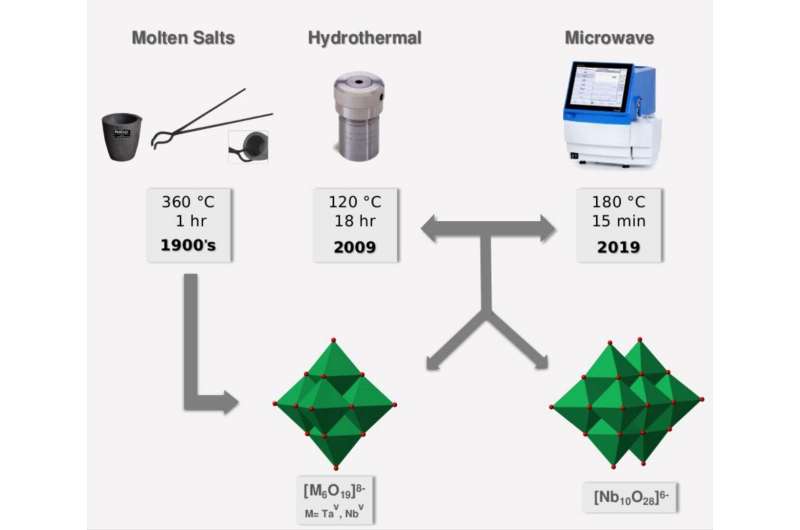Phys.org September 20, 2022
Researchers in Sweden have developed a method for producing solid materials from aqueous solutions containing nano-sized niobium molecules, called polyoxoniobates which are water-soluble. They act as molecular building blocks to make a wide range of materials, including supercapacitors that facilitate lithium-ion storage. The nanometer sized molecules can be dissolved in water and spin coated to deposit thin films of niobium pentoxide. When the films are heated to temperatures ranging from 200 to 1200°C, surfaces with varying corrosion resistance and electrochemical properties are obtained. This approach facilitates deposition of alkali-free, metal oxide thin films with varying crystallinity, thickness, and roughness. Due to the arrangement of the atoms in the crystalline niobium pentoxide, it creates channels that can easily accommodate the storage and release of lithium ions for more than a hundred-thousand cycles. This is what makes it a supercapacitor, and it offers electrochemical energy storage that can potentially replace a typical lithium-ion battery…read more. Open Access TECHNICAL ARTICLE

Overview of different approaches of preparing niobium and tantalum polyoxometalate ions and when they were reported. Credit: Adapted from Rambaran et al